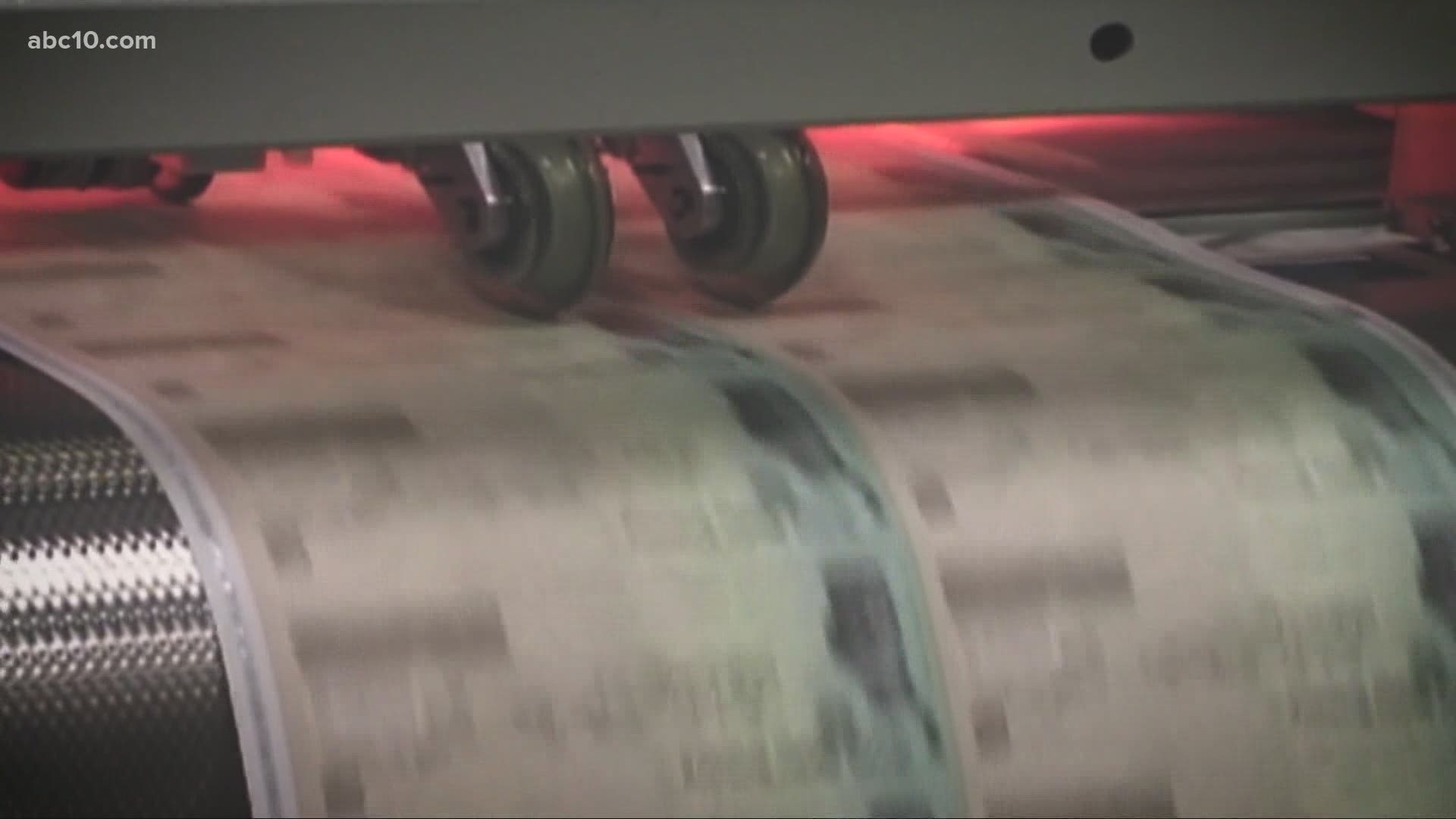SACRAMENTO, Calif — The California Legislature approved $600 payments for about 5.7 million people Monday. Gov. Gavin Newsom has said he will sign the legislation into law.
People with low to moderate incomes will be eligible to get the money. That includes people who claim the California earned income tax credit on their tax returns. In general, those people make $30,000 or less per year.
Immigrants who pay taxes using an individual taxpayer identification number and make $75,000 a year or less after deductions would also get the money.
People who receive assistance from state programs benefiting low-income families and people who are blind and disabled are also eligible.
Bundled with the $600 payments, there's also relief for small businesses, support for farmworkers, college students, child care workers and more. Here are seven key things about the Golden State Stimulus package:
Qualifications for the $600 payment?
These payments will generally be heading out to people who make $30,000 or less per year. It includes people who claim the Earned Income Tax Credit on their tax returns and immigrants who pay taxes with an individual taxpayer identification number and make $75,000 per year or less.
It's possible that someone can be eligible under both categories, and, if that is the case, they could get up to $1,200.
Didn't claim the EITC?
In a press conference, Senator Nancy Skinner said people can file an amendment on their tax returns to claim the EITC if they already filed and didn't claim the EITC. Skinner said the stimulus was designed for 2020 tax filing because some people might not have qualified in 2019 but do qualify now.
Officials said about $5 million has been dedicated to outreach specifically to get the EITC information out to as many people as possible.
Small business relief:
There's about $2.6 billion in additional funding for California's coronavirus relief small business and non-profit program which go up to $25,000. The money translates to grants that can help with employee expenses, rent, utilities, and costs associated with COVID-19 guideline compliance. Relief also comes in the form of tax cuts and fee reductions.
Industries like restaurants, bars, and cosmetology businesses will get $115 million in fee reduction for two years, according to State Senator Anthony Portantino.
$50 million in grants was also set aside for cultural institutions.
Housing for the Harvest:
$24 million will be given to support the Housing for the Harvest program.
The program offers temporary hotel housing to agricultural workers who need to isolate due to the virus and helps keep their loved ones safe by giving them a place to isolate themselves.
For more information on the program, click HERE.
Financial aid for college students:
$123 million will go to the California Community Colleges for emergency financial assistance grants for community college students. Senator Skinner said the money is aimed at keeping those students in college.
Child care funds
$400 million in federal funds will go toward stipends of $525 per enrolled child for all state-subsidized child care and preschool providers. The resources are meant to extend care for the children of essential workers through June 2022 and increase access to subsidized child care.
What Comes Next?
The bills were approved by both the senate and the assembly on Monday, so the next stop will be Governor Gavin Newsom's desk. The governor has said he will sign the legislation into law.
Frequently Asked Questions
California Department of Finance representative H.D. Palmer answered some frequently asked questions ABC10 has received from viewers on other coverage areas of the Golden State Stimulus, like people experiencing homelessness, those on disability, and more.
“[People] will fall into any number of different categories based on their income, living status, whether they’re enrolled in an assistance program, etc.,” Palmer said. “The important thing to bear in mind is that the eligibility threshold for individuals or families is whether they a.) qualify for the EITC or are an ITIN filer, and /or b.) if they are enrolled in one of the defined benefit programs – CalWORKS, SSI/SSP, or CAPI (Cash Assistance Program for Immigrants).”
Here is how he responded to the FAQs:
Q: If you had no income in 2020 and don't have anything to claim for 2020, can you still get a stimulus check?
Palmer: Under these circumstances, an individual would not be eligible.
Q: Are the homeless eligible to receive a stimulus check?
Palmer: If a homeless individual is currently receiving CalWORKs, SSI/SSP, or CAPI, he or she would be eligible for a one-time $600 grant payment.
Q: Will people who are on disability, but not on SSI, SSP, or CALworks, be eligible to receive a stimulus check?
Palmer: If an individual is on disability and also qualifies for the EITC, he or she would receive a $600 one-time credit after filing his or her tax return. To qualify for EITC, income must be lower than $30,000.
Q: Are people who are on EDD disability eligible to receive a check?
Palmer: If they are eligible for the EITC, then they would be eligible after filing their tax return.
Q: I am on Social Security Disability (SSDI) collecting $14,328 in 2020. I was not eligible for the California Earned Income Tax Credit. As a low-income disabled senior citizen, would I still be eligible to receive a stimulus check?
Palmer: In this case, if the individual is receiving SSI/SSP or CAPI, he or she would be eligible.



















